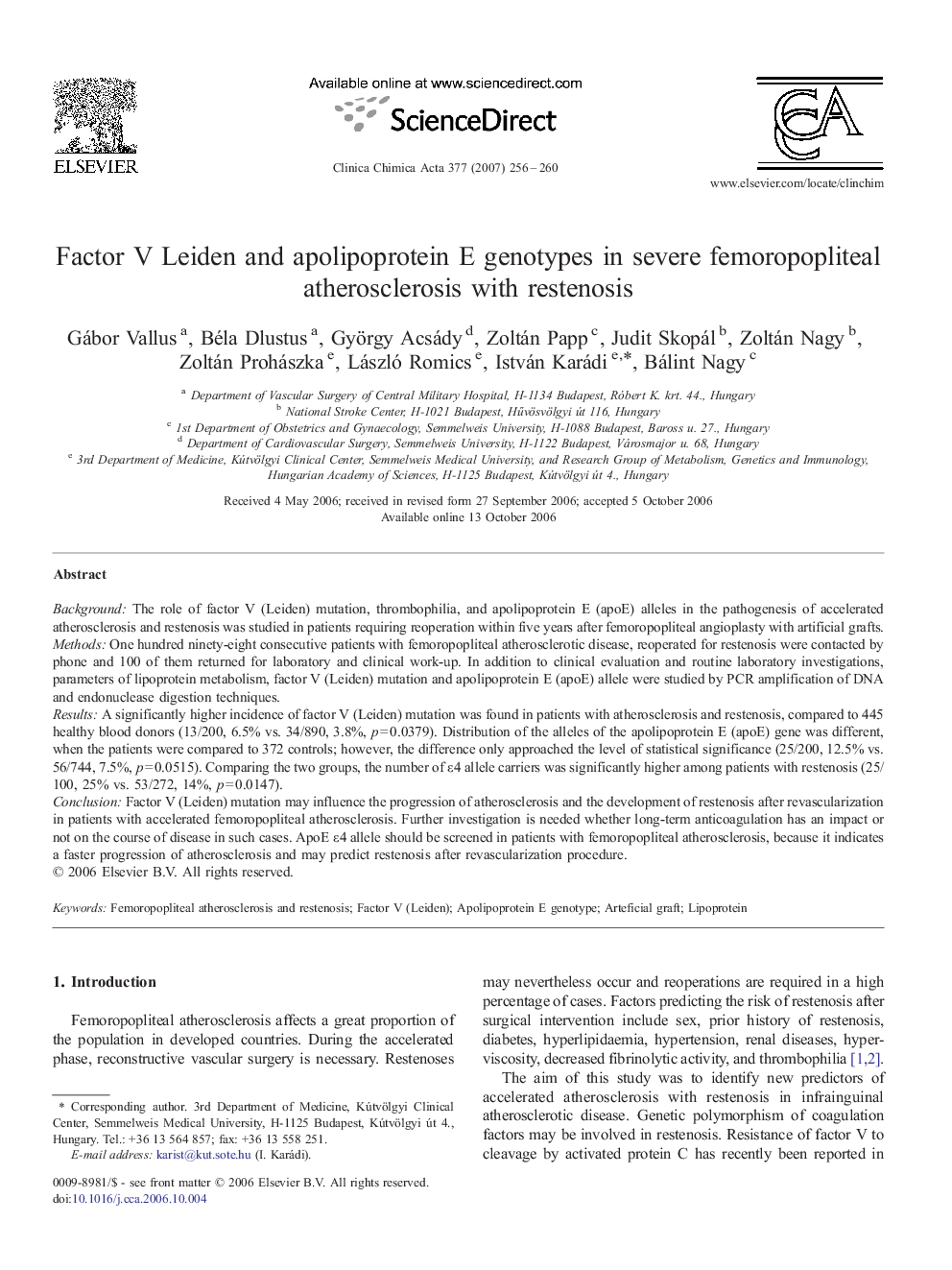| Article ID | Journal | Published Year | Pages | File Type |
|---|---|---|---|---|
| 1967713 | Clinica Chimica Acta | 2007 | 5 Pages |
BackgroundThe role of factor V (Leiden) mutation, thrombophilia, and apolipoprotein E (apoE) alleles in the pathogenesis of accelerated atherosclerosis and restenosis was studied in patients requiring reoperation within five years after femoropopliteal angioplasty with artificial grafts.MethodsOne hundred ninety-eight consecutive patients with femoropopliteal atherosclerotic disease, reoperated for restenosis were contacted by phone and 100 of them returned for laboratory and clinical work-up. In addition to clinical evaluation and routine laboratory investigations, parameters of lipoprotein metabolism, factor V (Leiden) mutation and apolipoprotein E (apoE) allele were studied by PCR amplification of DNA and endonuclease digestion techniques.ResultsA significantly higher incidence of factor V (Leiden) mutation was found in patients with atherosclerosis and restenosis, compared to 445 healthy blood donors (13/200, 6.5% vs. 34/890, 3.8%, p = 0.0379). Distribution of the alleles of the apolipoprotein E (apoE) gene was different, when the patients were compared to 372 controls; however, the difference only approached the level of statistical significance (25/200, 12.5% vs. 56/744, 7.5%, p = 0.0515). Comparing the two groups, the number of ε4 allele carriers was significantly higher among patients with restenosis (25/100, 25% vs. 53/272, 14%, p = 0.0147).ConclusionFactor V (Leiden) mutation may influence the progression of atherosclerosis and the development of restenosis after revascularization in patients with accelerated femoropopliteal atherosclerosis. Further investigation is needed whether long-term anticoagulation has an impact or not on the course of disease in such cases. ApoE ε4 allele should be screened in patients with femoropopliteal atherosclerosis, because it indicates a faster progression of atherosclerosis and may predict restenosis after revascularization procedure.
